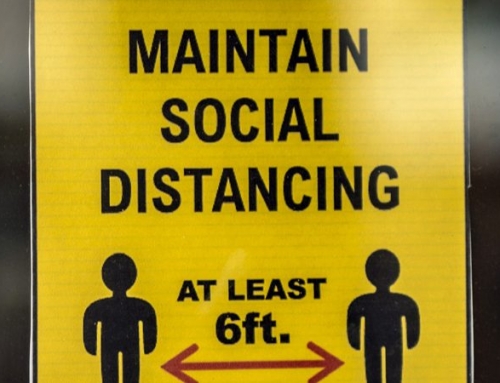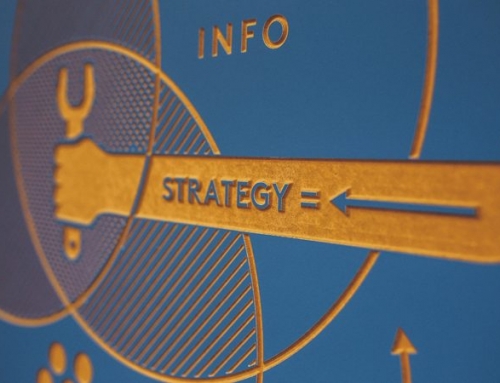Marketing evolves with technology and as the pace and intensity of digital development continues to increase, old fashioned or outdated practices stand out for all the wrong reasons. Though there is some truth to the adage, “if it isn’t broken, don’t fix it” sometimes, you need to get with the times to avoid looking as if you belong in the last century. Here are ten marketing practices that are way past their sell by date.
1. Cold Calling
We’re not sure if this was ever a good idea. Nobody ever likes to be disturbed by somebody they don’t know, especially if they’re awkwardly reading a badly written script. During the 1980s, this technique was popularised in the UK by several industries, include double glazing window manufacturers and newspaper publishers. The theory was that most people wouldn’t mind having a quick chat over the phone and could potentially be persuaded to make a purchase there and then. High pressure tactics, cleverly worded scripts and sometimes less than ethical terms and conditions meant that this practice enjoyed a brief heyday in the late 90s and early 2000s but as anybody who has worked in this environment will tell you, this has definitely come to an end. Cold calls are now more likely to be greeted with hostility or silence than with an enthusiastic conversation, so in almost all circumstances, its best avoid using this approach unless you want to establish a reputation as a nuisance.
2. Buy One, Get One Free
In an age where consumers are more aware of marketing tactics than ever, the bogoff or buy one, get one free offer is often met with understandable scepticism. People are now more environmentally conscious and due to global economic uncertainty, less willing to splash out unless they believe they genuinely need a product. The food retail sector is one notable exception but, in many sectors, this style of offer is often seen as code for poor quality stock that needs to be shifted quickly. Instead of using this technique, consider variations such as buy one, get one half price. This adds value but also creates the impression the customer is getting something extra, on top of what they have already paid.
3. Plastic or Non-Recyclable Branded Merchandise
Climate change is now thought to be even more of a significant threat to humankind than we first thought. This is largely due to the overuse of non-sustainable energy sources such as fossil fuels and also the mass production of products that don’t biodegrade. Consumers are changing the way they think and companies that are seen to be complicit in the acceleration of the climate change will not be looked upon favourably by the vast majority of people. Tacky plastic badges, single use pens and other mass-produced products can be a great way of spreading brand awareness, but they are also systematically killing the planet. In the 21st century, it’s important to make sure that anything with your brand on it is made from sustainable sources or at the very least, doesn’t contribute to the growing ecological crisis we are facing.
4. Old Fashioned Stereotypes
Whether you think political correctness has gone too far or whether you think there’s still a lot more work to do, the ideals of the past no longer work as an effective marketing tool unless you’re using them ironically or as an attempt at satire. Overtly sexualised images can be seen as demeaning by many people and others simply find them distasteful. Similarly, any stereotypes about minority groups can be considered extremely offensive and may even lead to expensive legal problems. Even if you don’t subscribe to the ideals of the modern world on a personal level, it is your responsibility as a business owner or marketing professional to ensure that you move with the times.
5. Pop Up Ads
They’re a part of life for every person who uses the internet now, but they’re also incredibly annoying. Do you really want your company to be associated with that level of frustration and annoyance? They are undoubtedly extremely effective when it comes to raising brand awareness and in certain industries, they can still be effective for some people, but there’s no escaping the fact they are one of the most grating and intrusive ways to grab a person’s attention. Increasingly, this kind of ad is associated with less than ethical industries which means that more legitimate businesses are already distancing themselves from them. The chances are, they’re here to stay, but they will always be more of an annoyance than an effective way to convert.
6. Automated Recorded Messages
Nobody likes a one-sided conversation unless they’re being given a stream of compliments or told they’ve unexpectedly won something. Finding a voice mail notification on your phone, only to realise it’s from the disembodied, anonymous voice of marketing campaign is one of modern life’s regular disappointments. Most people will simply hang up and ignore the message, whereas some people will even block your number. Techniques like this should be reserved for inbound marketing and should be used sparingly. In a world where genuine human interaction is dwindling, the last thing anybody needs is more conversations with machine generated content.
7. Direct Mail Marketing (Junk Mail)
This style of marketing earned its nickname very quickly in its life cycle. At this stage, physical mail is dying out as the digital world continues to grow. Paper or cardboard flyers, letters addressed to “the occupier” and other outdated marketing materials invariably end up in the same place. The recycling or the trash. With the exception of take away food services and small businesses such as local gardening services, for example, most companies would do well to let this old-fashioned approach die with dignity. Replacing physical mail with email, texts and other digital mediums is standard practice now as its far easier to measure engagement by using these techniques.






